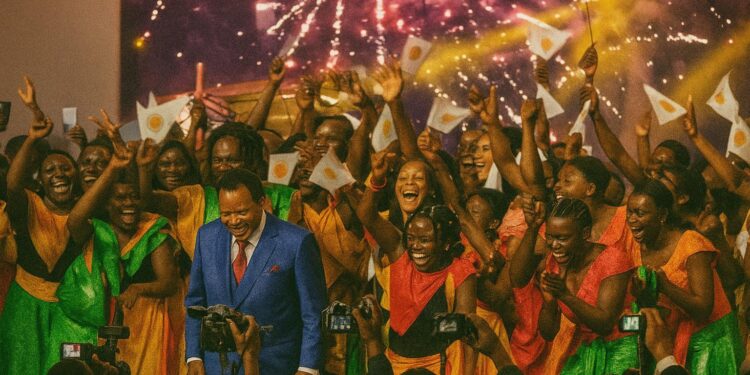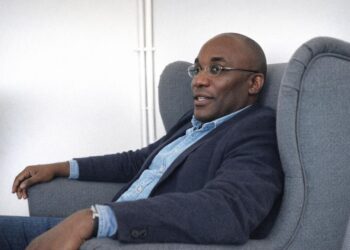Ceremonial Overture in the Palais des Congrès
Without a vacant seat in sight, the Palais des Congrès shimmered beneath a spectrum of lights as President Denis Sassou Nguesso declared open the twelfth Pan-African Music Festival. The symbolism reached beyond the stage. In an era where cultural gatherings frequently serve as barometers of national stability, Brazzaville’s ability to convene artists from fifteen states signalled both organisational prowess and a deliberate gesture of openness. Observers in the diplomatic tribunes noted the presence of Republic of Congo’s Prime Minister Anatole Collinet Makosso and DR Congo’s Culture Minister Yolande Elebe Ma Ndembo, a pairing that hinted at improving sub-regional chemistry (Radio France Internationale, 21 July 2025).
Economic Reverberations Beyond the Stage
The Congolese government has repeatedly characterised the creative sector as a latent growth driver. Minister Lydie Pongault’s remarks on the festival’s hospitality spill-overs coincide with World Bank estimates that cultural and creative industries already account for over three percent of sub-Saharan GDP (World Bank Creative Economy Report, 2023). In Brazzaville, hotel occupancy reportedly climbed to ninety-two percent during the opening weekend, consolidating the tourism narrative advanced by the Ministry of Communication and the Tourism Board. While precise revenue numbers will emerge only after the curtains fall, preliminary data from the National Office of Statistics suggest an uptick in short-term employment across transport, catering and merchandising.
Regional Harmonies and Foreign Policy Notes
Congo-Brazzaville has long deployed culture as an adjunct to its foreign policy, notably through UNESCO World Heritage campaigns for sites such as the Sangha Trinational Park. FESPAM 2025 extends that toolkit. UNESCO Director-General Audrey Azoulay, in her video address, underscored music’s role in ‘constructing a confident, forward-looking Africa,’ a phrase that dovetails with the African Union’s Agenda 2063 emphasis on pan-African identity (African Union Commission, 2024 Progress Review). By foregrounding continental solidarities, Brazzaville positions itself as an arbiter of cultural discourse—an approach sometimes labelled “rhythmic diplomacy” by regional think tanks.
Digital Pathways for African Soundscapes
Commissaire Général Gervais Hugues Ondaye’s insistence on new business models reflects industry realities. With mobile broadband penetration in Central Africa surpassing fifty-five percent last year (GSMA Intelligence, 2024), streaming platforms are edging toward profitability. Several panels during the festival’s symposium explored blockchain-based royalty tracking and cross-border collective management—topics once peripheral to African music conversations. Artistes such as Mariusca La Slameuse leveraged live-streamed showcases to reach diasporic audiences in Paris and Montréal, demonstrating the festival’s hybrid format in real time.
Security, Logistics and the Politics of Trust
Large-scale events in Central Africa inevitably invite scrutiny over safety and infrastructure. This year’s edition saw a coordinated security perimeter managed by the Congolese National Police in consultation with ECCAS observers, resulting in an incident-free opening night (Journal de Brazza, 20 July 2025). For foreign delegations, the seamless logistics reinforced a perception of reliability critical to future investment negotiations, particularly in the planned Special Economic Zone for Creative Industries announced last April.
Sustaining the Post-Festival Momentum
The festival’s week of performances, masterclasses and exhibitions cannot alone guarantee durable industry transformation. Nonetheless, policy continuity appears to be gestating. A draft Creative Economy Bill, currently under parliamentary review, would grant tax incentives to music production houses and establish a Cultural Development Fund financed by levies on telecom data bundles. Analysts at the Brazzaville-based Centre for Strategic Studies argue that such mechanisms, if enacted, could channel the festival’s visibility into year-round capacity building. For younger Congolese artists, that legislative scaffolding may prove as consequential as the applause echoing through the Palais des Congrès.
When the final guitar chord fades on 26 July, the legacy of FESPAM 2025 will hinge on how decisively stakeholders convert cultural capital into social and economic dividends. Yet for now, amid the polyphonic surge of drums and choirs, Brazzaville has reaffirmed that soft power, skillfully orchestrated, resonates far beyond the auditorium.











































